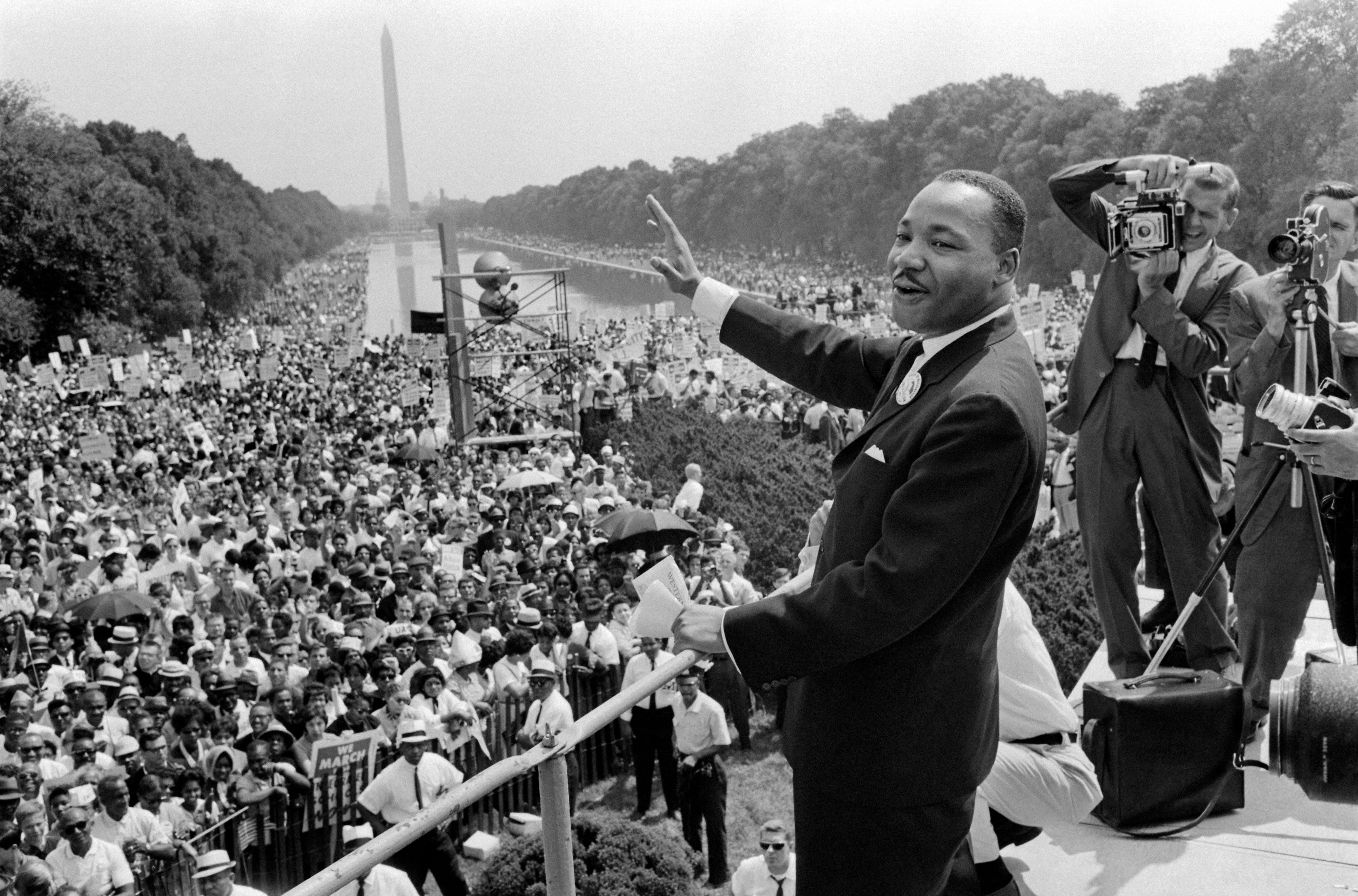Seven myths about Black people – debunked
These false narratives have been left to fester for too long, and they cannot go unchallenged, writes Nels Abbey


Your support helps us to tell the story
From reproductive rights to climate change to Big Tech, The Independent is on the ground when the story is developing. Whether it's investigating the financials of Elon Musk's pro-Trump PAC or producing our latest documentary, 'The A Word', which shines a light on the American women fighting for reproductive rights, we know how important it is to parse out the facts from the messaging.
At such a critical moment in US history, we need reporters on the ground. Your donation allows us to keep sending journalists to speak to both sides of the story.
The Independent is trusted by Americans across the entire political spectrum. And unlike many other quality news outlets, we choose not to lock Americans out of our reporting and analysis with paywalls. We believe quality journalism should be available to everyone, paid for by those who can afford it.
Your support makes all the difference.History, like the present it helps shape, is often a hotbed of misunderstandings and misconceptions. Some of this is accidental, but some is not. Sometimes, it is a case of simple and useful narratives being allowed to fester unchallenged.
There is scarcely a branch of history where misconception is more widespread than the history – and current affairs – of the children of Africa. Here, I will challenge some of these misconceptions, and clear them up.
Martin Luther King was always a beloved figure: With nine of out 10 Americans holding him in high esteem, his birthday now a national holiday and his “I Have A Dream” speech quoted endlessly, Dr Martin Luther King Jr is, today, one of the most respected and revered people to ever walk the planet. You could be forgiven for thinking that King always enjoyed the level of reverence he does now, but this could not be further from reality.
As his focus shifted from civil rights and integration, to economic empowerment and reparations, Martin Luther King was deeply unpopular when he was murdered. The last Gallup poll ever conducted during his lifetime found just 32 per cent of Americans held a positive view of King compared to 63 per cent who had a negative view of him.
From the point of death, Martin Luther King was posthumously sainted. Interestingly, in this process, King has been conveniently purged of any radicalism and his words have become the tools of political opportunists to the point that you are now more likely to hear King quoted by those who stand for everything he stood against (their choice quote never goes further than “judged by the content of their character not the colour of their skin”).
Britain was the first nation to abolish slavery: This is a patriotic rallying call that whitewashes Britain’s 250-year domination and industrialisation of the capture, commodification and enslavement of over three million Africans (roughly the population of modern Wales) and their offspring. Somewhat inconveniently, it is also untrue.
The actual first nation to truly end slavery was Haiti. Following a 13-year revolution against their French enslavers, in 1804, Haiti became the first enslaved population to truly liberate themselves and outlaw slavery – decades before Britain did.
British slavery ended with abolition: In 1807, Britain outlawed the trade of enslaved Africans. In 1833, Britain passed a law that “abolished” slavery itself within its Empire – the law came into effect in 1834. There was a catch, however, in that the previously enslaved had to work for free for another six to 12 years as unpaid “apprentices”. The enslavement of Africans in the British Empire actually ended in 1838, and, technically, restarted in an even more wholesale manner with the mass colonisation of vast areas of Africa and the Caribbean. For many populations, colonisation meant “slavery from home”.
African tribes: Scotland has a population of roughly 5.5 million and a landmass of 77,910 km2 and they are rightly referred to as a “nation”. Yoruba has a population of roughly 45 million people, a landmass of 142,114 km2, vast regional dialects to their language and cultural variances – yet they are labelled a “tribe”.
What are dismissively described as African “tribes” were historically kingdoms, empires and nations. And many of them had land masses and populations larger than their colonial oppressors. In the necessary subjugation that was the bedrock of the creation of colonial construct nations – such as Nigeria and the overwhelming majority of what we today recognise as African nations – these kingdoms, empires and nations became “tribes”.
The term “tribe” purposefully evokes a small population (even in the 2018 movie Black Panther, they depicted African “tribes” as being small groups of people). The same things happened with Native American “tribes”. The term does not lend to the reality that their population was, according to estimates, around 145 million in 1491, but thanks to disease, rape, war and slavery at the hands of European colonisers, had fallen by 130 million by 1691, a population wipe out of 90-95 per cent.
In Africa, when some of these actual nations, such as the Igbo (of Nigeria), recognised that they were not “tribes” and decided to go their own way as sovereign nations, all hell broke loose. In the case of the Igbos, it lead to the Biafran war from 1967 to 1970, which ended in over a million deaths.
Black-on-Black crime: Crime, and especially violent crime, when it occurs in Black communities, is pathologised in a way that suggests that there is something dangerous or predatory about Black people. The reality is that crime often prevails at higher rates in poorer communities simply because they are poorer communities. Poverty, proximity (ie opportunity and access to each other) and mental health are key drivers of crime. Not ethnicity or race. And certainly not Blackness.
Nelson Mandela was unique: Because he spent 27 gruesome years under the pain of imprisonment by the apartheid regime in South Africa, and due to the global campaign surrounding his release, Nelson Mandela has been elevated to a saint-like figure. And rightly so.
Mandela’s plight, however, was far from unique in Black history. From continental Africa to practically every corner of the diaspora, Black leaders and political groups faced the most extreme persecution possible. From Patrice Lumumba to Kwame Ture, Stokely Carmichael, King, X, Mumia Abu-Jamal – many of them were murdered, many spent time in prison (some, especially Black Panthers in America, are still in prison) most of them lived under surveillance and under the weight of state propaganda. And even as Mandela became an internationally celebrated statesman, he remained on a terror watch list until 2008.
To keep up to speed with all the latest opinions and comment, sign up to our free weekly Voices Dispatches newsletter by clicking here
“The function, the very serious function of racism is distraction”: The wise, piercing and empowering words of the great Toni Morrison. As much as I revere Morrison and actually find myself encouraged by these words, I’ve long struggled with the idea of racism’s purpose being distraction as, sadly, history tells us otherwise.
From colonialism to slavery to pay disparities – the main actual function of racism has been to extract and exploit. Yes, racism does distract, but extraction and exploitation has been its greater burden by far. Money, power, privilege and the political and psychological advantage has always been in extraction and exploitation. The function of the distraction part of racism has predominantly served to supplement the extraction part.
Europeans did not send ships into Africa to distract Africans. And they did not get rich by distracting Africans either.
The above doesn’t even begin to scratch the surface. Along with the catastrophes Black people have faced over the last four to five centuries, came an avalanche of propaganda, falsehoods and oversimplified narratives. Volumes of books could be written on misconceptions around Blackness. Even though they have been left to fester for so long, they cannot go unchallenged.
Nels Abbey is a British-Nigerian writer, media executive and satirist



Join our commenting forum
Join thought-provoking conversations, follow other Independent readers and see their replies
Comments